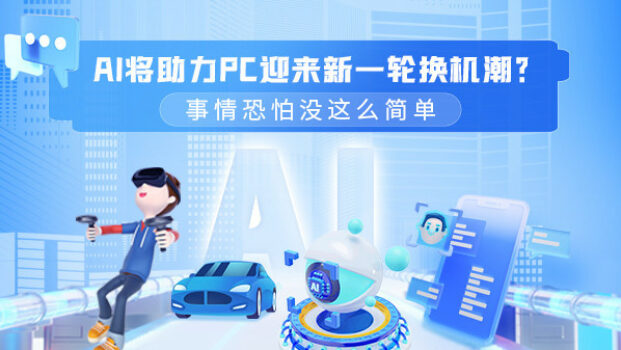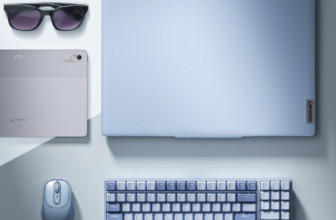In the technological wave from 2022 to 2024, ChatGPT emerged as a shining star in the field of AI, playing a key role in AI PC development trends. During this period, artificial intelligence (AI) technology was speeding like a rocket, reshaping every corner of the world with unprecedented power. From smart mobile devices to personal computing platforms to intelligent driving systems, the penetration and influence of AI are everywhere, especially in the emerging AI PC development trends.
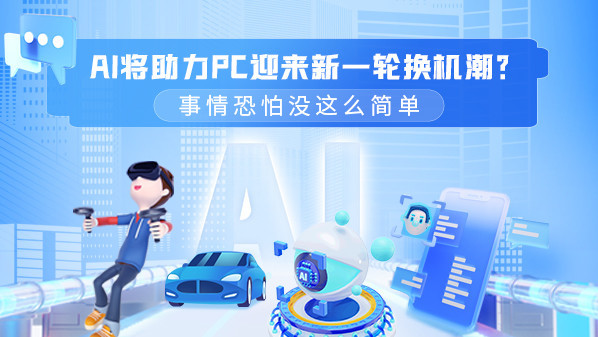
I have a PC
In this race for technological innovation, giants like OpenAI, Google, and Microsoft are competing. They continue to optimize algorithms and models while exploring new application scenarios.
At the same time, AI is driving new vitality in the mobile phone market. With Android 15 and iOS 18 on the horizon, companies like Xiaomi and Huawei are also exploring AI. Smartphones are becoming smarter and more personalized.
Similarly, the PC market is being reshaped by AI. Manufacturers such as Lenovo, Apple, Huawei, and Honor have introduced AI PC products. This marks the beginning of significant AI PC development trends. It shows how AI technology is influencing personal computing and shaping the future.
Smart cars, which are popular, are also becoming new carriers of AI technology. The automotive industry is moving from “software-defined” to “AI-driven”, integrating advanced AI technology to achieve a more intelligent and safer driving experience.
Amidst all these changes, NVIDIA has become the undisputed “biggest winner” with its excellent GPU and unparalleled AI computing capabilities.
At a time when “AI” is reshaping the world, Tinydealhas launched a series of special topics on “AI Reshaping”. This article focuses on “AI PC”.
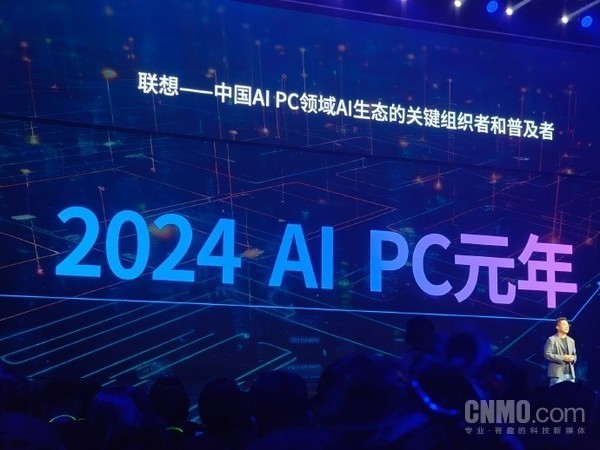
2024 is called the first year of AI PC
As an emerging market segment, AI PC is receiving close attention from the industry. The industry unanimously believes that 2024 is the beginning of AI PC. The combination of AI and PC will help the traditional PC industry burst out with new vitality, and AI PC will become an important force in promoting the growth of the PC market.
Not only are analysts very optimistic about PC shipments this year, computer manufacturers are also launching new AI PC products to meet consumer demand. But if we want to rely on AI to drive shipments of traditional PCs, is it really that simple?
The industry is very optimistic about AI PC
After 2022, the global PC market will begin to enter a cold winter.
According to Canalys statistics, PC shipments in 2022 will be 285.1 million units, a 16% decrease compared to 2021. In 2023, this situation still has not improved. The total number of global PC shipments is 247 million units, a 13% decrease from 2022. Although the decline has narrowed, it still exceeds 10%.
When the time comes to 2024, AI PC is considered to be the new engine leading the development of the PC industry.
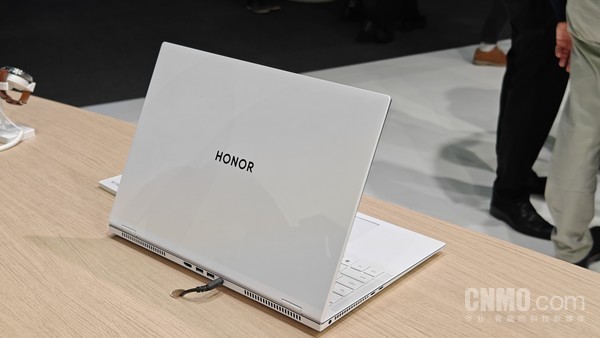
In the technological wave from 2022 to 2024, ChatGPT is like a shining star in the field of AI. During this period, artificial intelligence (AI) technology was speeding like a rocket, reshaping every corner of the world with unprecedented power. From smart mobile devices to personal computing platforms to intelligent driving systems, the penetration and influence of AI are everywhere. One of the most significant “AI PC development trends” is the integration of AI technology into personal computers, which has the potential to reshape the market. As companies continue to explore AI’s role in personal computing, the rise of “AI PC development trends” shows promise for future market shifts.
At the end of 2023, Lenovo, Apple, Huawei, and other manufacturers will take the lead in launching new AI PC products. In the first quarter of 2024, global PC sales indeed changed from several consecutive quarters of decline and began to rise. Canalys data shows that in the first quarter of 2024, the global personal computer market showed a growth trend, with total shipments of desktop and laptop computers reaching 57.2 million units, a year-on-year increase of 3.2%. Although the growth rate is limited, it shows that PC demand continues to pick up in various fields. Canalys predicts that the PC market will accelerate growth throughout the year, benefiting from Windows 11 updates and the development of AI PCs.
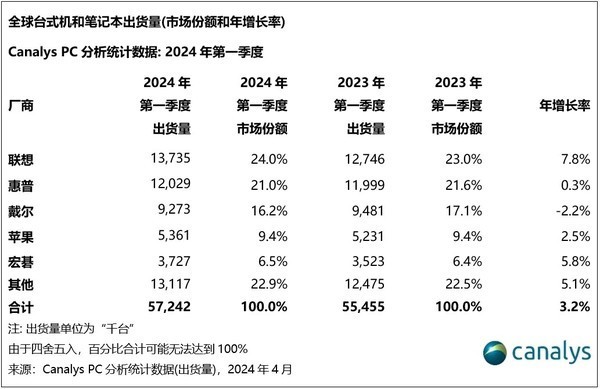
Global PC shipments in the first quarter of 2024
Reports released by Counterpoint and IDC also confirmed that in the first quarter of 2024, global PC shipments increased by 3% year-on-year, ending two consecutive years of decline and returning to pre-epidemic levels.
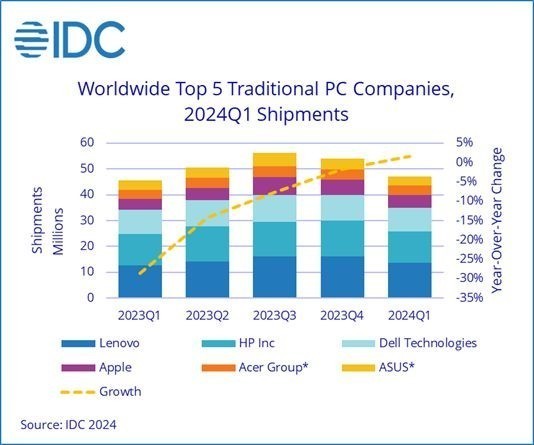
Global PC shipments in the first quarter of 2024
According to the agency, this change is attributed to the arrival of the AI PC era, the recovery of shipments in various fields, and the upgrade cycle of end users.
Sigmaintell predicts that 2024 will be the first year for large-scale shipments of AI PCs. It is expected that by 2024, global AI PC shipments will reach approximately 13 million units. From 2025 to 2026, AI PC shipments will continue to maintain an annual growth rate of more than double digits and become a mainstream PC product type in 2027. In the next five years, the global PC industry will steadily enter the AI era.
Major manufacturers have launched new AI PC products
In response to consumers’ growing demands for AI PC use, manufacturers are also keeping up with the pace, constantly launching new products and in-depth thinking about the ideal form of AI PC.
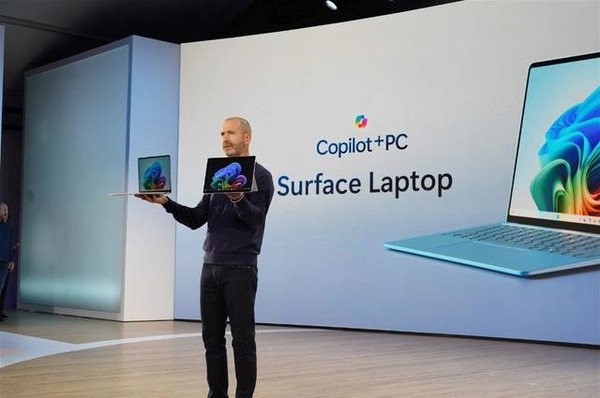
Microsoft launches Windows 11 AI PC
Following the launch of the first batch of AI PCs that combined artificial intelligence (AI) functions into personal computers (PCs) in March, on May 20, local time, Microsoft launched a new PC product that incorporates its AI assistant Copilot. 11 AI PC. This notebook is called the most powerful AI PC in history.
According to reports, Microsoft’s new AI PC can run certain AI tasks without an Internet connection. These computers can not only translate audio in real-time, but also recommend responses to incoming messages, suggest changes to settings apps, and even discuss what’s on the screen with people. The latest flagship AI model GPT-4o launched by OpenAI last week will also soon support Copilot. Microsoft CEO Nadella said in an interview with Bloomberg: “We are now looking forward to a real showdown between Windows and Mac (Apple Computer).”
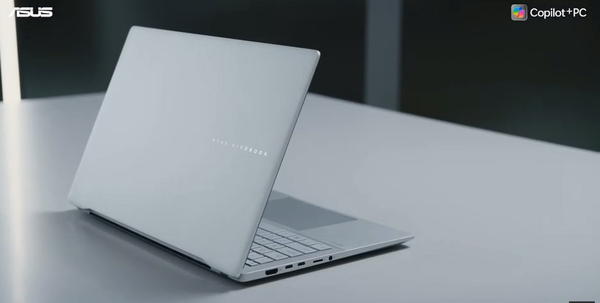
ASUS Fearless Pro 15 Qualcomm Edition
Domestically, on May 21, ASUS held an online press conference with the theme of “AI Always Incredible”. The Intrepid Pro 15 Qualcomm Edition equipped with Qualcomm X Elite processor was released. Its total computing power reaches 75 Tops, supports many AI functions including the latest Windows 11 24H2 new Copilot, Recall, and Cocreator, and realizes the platform attempt of AIGC generation and new architecture.
On May 15, at Huawei’s summer all-scenario new product launch conference, Huawei brought a new color for the Huawei MateBook X Pro – Dawn Pink. As the flagship product of Huawei’s smart PC, the new Huawei MateBook Entrance – AI space, pushing personalized AI capabilities to consumers. In addition, Huawei has also cooperated with Wondershare Filming to support AI special effects calling NPU, one-click AI keying, and quickly replacing the video background, making video creation easier and more efficient.
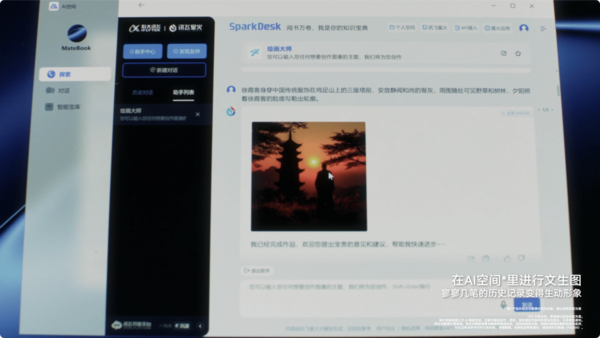
In addition, Lenovo held an AI PC Yuanqi Edition & AI mobile phone release experience event at its global headquarters in Beijing. The event focused on the current cutting-edge AI terminal field, explaining in detail and launching a variety of AI terminals.
The vigorous development of AI PC cannot be separated from the support of upstream suppliers. In terms of the supply chain, in October last year, Qualcomm released the new Snapdragon development provides strong support. On April 24 this year, Qualcomm once again focused on the PC market and launched the new Snapdragon X Plus. In terms of manufacturing process, the Snapdragon X Elite, uses an advanced 4-nanometer manufacturing process with a maximum main frequency of up to 3.4GHz. Compared with the Apple M3 processor, the CPU performance is also 10% ahead.
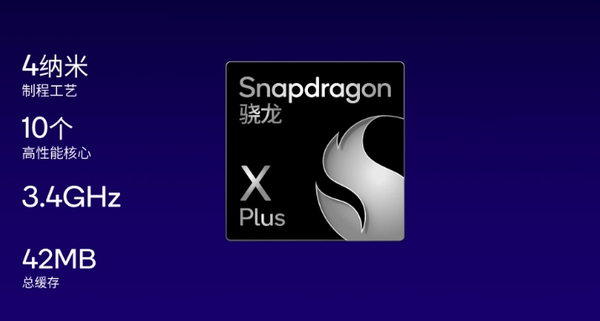
Qualcomm Snapdragon X Plus
Apple is also investing in AI. At Apple’s new product event held on the evening of May 7, Apple officially brought the M4 chip. The chip uses second-generation nanotechnology and has 4 performance cores and 6 energy efficiency cores. Compared with the previous generation M2 chip, there is a qualitative leap in performance. AI functions have also been added, and the M4 chip NPU computing speed reaches 38 trillion times per second, which is 60 times that of the A11 chip. Apple claims that the M4 chip’s neural engine is more powerful than any AI PC today. This is an important step taken by Apple in terms of intelligence and will significantly improve the machine learning and data processing capabilities of Apple devices.
In addition, as COMPUTEX 2024 approaches, Canalys predicts that this year’s COMPUTEX will become a key battlefield for AI PCs, with multiple processor manufacturers gearing up.
There’s still a long way to go
Although AI PC is the development trend of personal computers in the future, in the short term, AI PC may not stimulate consumers’ additional demand for replacement machines. Current AI PCs are facing dilemmas such as insufficient hardware computing power, lack of end-side applications, and poor personalized user experience. These difficulties not only limit the application development of AI technology in the field of personal computers but also affect users’ acceptance and satisfaction with AI PCs.

First of all, insufficient hardware computing power is a major bottleneck in the development of AI PC. As AI models become more complex, the requirements for computing power also increase. Traditional personal computer hardware configurations are often difficult to meet these high-energy consumption and high-computation AI models, resulting in the inability to fully realize the performance potential of AI. Especially in tasks such as deep learning that require a large amount of parallel processing, existing CPU and GPU performance often become a constraint. In addition, the high cost of high-performance hardware may discourage ordinary consumers and limit the popularity of AI PCs.
Secondly, the lack of end-side applications is also one of the problems faced by AI PC. Although cloud computing provides powerful remote computing capabilities, relying on cloud processing brings latency and privacy issues. The ideal AI application should be able to run on the local device side, reducing data transmission, improving response speed, and better protecting user data. However, there is currently a lack of AI end-side applications optimized for personal computers on the market, which limits the practicality and convenience of AI technology.
Finally, the lack of personalized user experience further exacerbates the dilemma of AI PC. Users’ usage habits and needs vary widely, but many AI PC products fail to provide sufficient customized services. This includes not only personalized choices in hardware configuration but also user experience customization at the software level. Due to the lack of optimization for specific user needs, many users may feel that AI PCs have no advantages over traditional PCs and are unwilling to switch or upgrade.
Summarize
Regarding the potential of the AI PC market, TrendForce said that due to the current high cost of upgrading AI PC-related software and hardware, the early stage of development will focus on high-end business users and content creators. This group is interested in using AI processing functions in exchange for productivity efficiency. There is a high demand, and at the same time, they can immediately benefit from relevant applications and will become the first generation of users. The emergence of AI PC will not necessarily stimulate additional PC purchase demand. Most of them will naturally migrate to AI PC devices during the business replacement process in 2024.
Yang Yuanqing, chairman and CEO of Lenovo Group, said that AI PC needs to go through a mature process. According to historical rules, it will occupy 10% of the market share in the early stage and become mainstream in the future.
Overall, the AI PC market has huge development potential. In the next few years, the widespread application of AI technology and the easing of supply chain problems will jointly promote the continued growth of the PC market. For the industry and consumers, this is undoubtedly a trend worth looking forward to.
